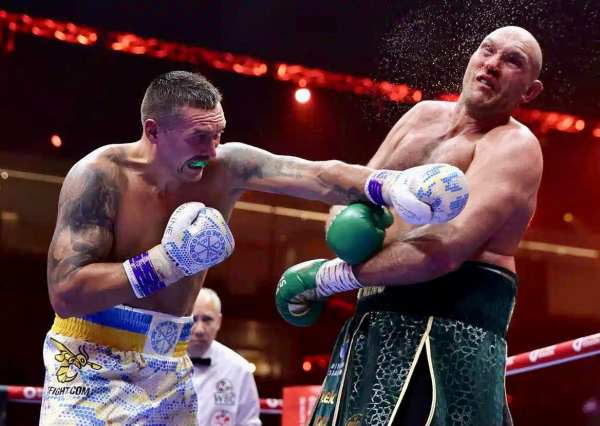
NEW YORK — Two heavyweight boxers squared off without throwing a punch Tuesday, as an American champion accused a Russian fighter of using a performance-enhancing substance implicated in his country’s larger doping scandal and the ban on tennis star Maria Sharapova.
WBC champion Deontay Wilder and his one-time challenger Alexander Povetkin were both in federal court in Manhattan for opening statements at a civil trial stemming from a breach of contract lawsuit Wilder filed after Povetkin’s failed drug test forced the cancellation of their 2016 bout.
Wilder, 31, of Tuscaloosa, Alabama, entered the courtroom wearing a black trench coat and diamond-encrusted wristwatch, while Povetkin, 37, wore a drab gray suit. They heard lawyers ask a jury to decide whether a test result showing the Russian had taken the heart medicine meldonium was valid. If jurors side with Wilder on that point, he can move forward with a claim for $5 million in damages for losing a big payday for the fight in Moscow.
After the World Anti-Doping Agency barred meldonium at the start of 2016, Povetkin tested negative for it three times. But a surprise test before the Wilder bout came back positive. Wilder’s lawyers say that’s proof that Povetkin thought the negative tests gave him enough cover to get away with cheating.
“That’s the only explanation that would make sense in this case,” said plaintiff attorney Judd Berstein.
The defense said Povetkin had used the substance, but only before the ban. Experts will testify how traces of it can linger for months at low levels that can be missed by some tests and caught by others, said Povetkin’s attorney, Kent Yakowitz.
“It turns out meldonium stays in the body a very long time,” he said.
Several Russian athletes who have tested positive have used the same defense. Russian president Vladimir Putin also has weighed in by criticizing the doping agency for not doing more research before imposing the ban, questioning whether the substance actually boosts performance.
Evidence of widespread doping heavily depleted Russia’s team for last year’s Olympics in Rio de Janeiro and has prompted anti-doping agencies to call for the banning of Russian teams from international sports competitions.
Sharapova is nearing the end of a 15-month ban for testing positive for meldonium.





More News
Liu Gang, Brico Santig Join Forces
Highland’s Double Impact: August 18 at Lumpinee
Balajadia, Atencio in Action in Thailand